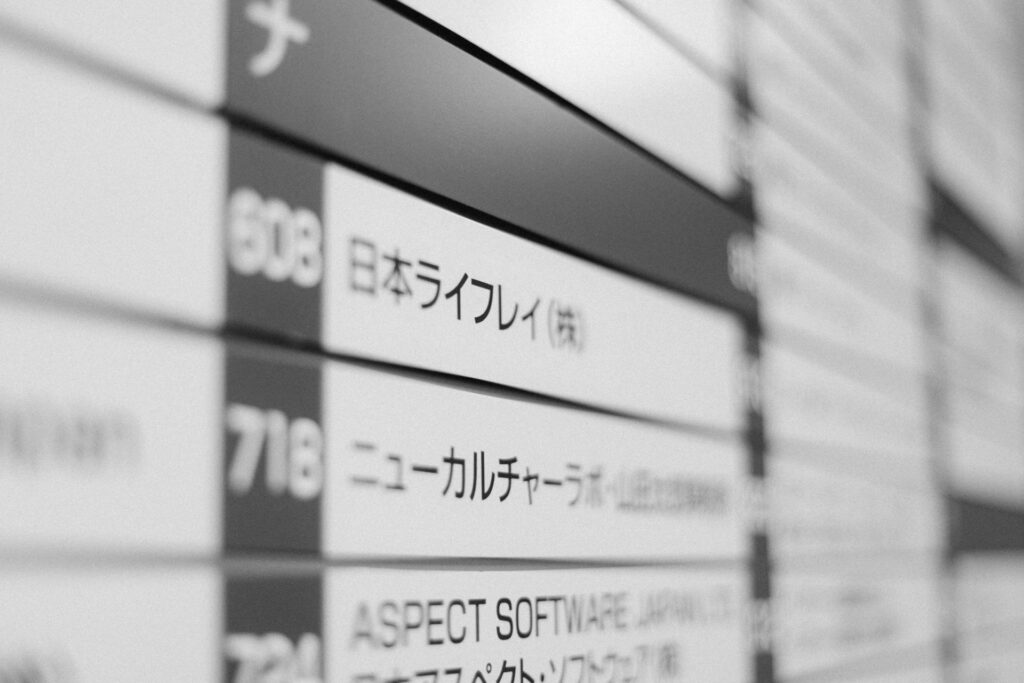Starting a business in Japan offers access to the world’s third-largest economy and a gateway to Asian markets. While there are costs involved, they may be more manageable than many assume. This guide provides a balanced view of the expenses for establishing and operating a business in Japan, along with practical ways to minimize these costs.
Straight from Tokyo
Costs of Starting a Business in Japan

Initial Investment Overview
While some sources suggest high startup costs, many entrepreneurs successfully launch businesses in Japan with modest investments.
According to the Japan Finance Corporation Research Institute, about 40% of new businesses start with less than 5 million yen (approximately US$44,000). Costs vary significantly based on your business model, location, and structure.
Registration and Legal Expenses
Company establishment costs are relatively modest. Basic registration for a subsidiary company is around US$9,000, while a branch office costs about US$6,000. Many entrepreneurs use professional services to navigate the bureaucracy efficiently.
| Registration Item | Subsidiary Company (US$) | Branch Office (US$) |
|---|---|---|
| Registration costs | 2,200 | 900 |
| Name seals (company and personal) | 300 | 300 |
| Professional fees for registration | 2,600 | 2,200 |
| Bank of Japan notifications | 1,300 | 700 |
| Tax notices | 900 | 900 |
| Social and labor insurance | 1,300 | 1,300 |
| Total | 8,600 | 6,300 |
Capital Requirements
While 5 million yen (US$44,000) is the standard capital requirement for foreigners seeking a Business Manager visa, this amount is not necessarily “spent” – it’s capital investment that remains in your company’s account.
For some business categories and through special startup visa programs in Tokyo, Fukuoka, and Niigata, entrepreneurs can start with substantially less capital.
Office Setup Costs
Office costs can be significantly reduced by using alternatives to traditional office space. Many startups utilize temporary offices, shared workspaces, or virtual offices during their initial phase.
JETRO (Japan External Trade Organization) offers free temporary office space for up to 50 business days, substantially reducing initial expenses.
| Office Setup Options | Cost (US$) |
|---|---|
| JETRO temporary office (50 days) | Free |
| Serviced office (monthly) | 500-1,500 |
| Traditional office + deposit | 15,000-40,000 |
| Home office/virtual office | 100-300/month |
Recruitment and Personnel Expenses
While traditional recruitment agencies charge substantial fees (around 35% of annual salary), many startups use alternative methods. Online job platforms, social networking, and university recruitment programs offer cost-effective alternatives. Additionally, starting with part-time staff or contractors can significantly reduce initial personnel costs.
Annual Costs of Running a Company in Japan
Ongoing Office Expenses
Serviced offices provide a cost-effective alternative to traditional leases, offering all-inclusive packages with utilities, internet, and basic office equipment. Monthly costs typically range from ¥50,000 to ¥150,000 (US$440-1,320) depending on location and size.
Tax Obligations and Compliance
While compliance is necessary, smaller businesses face lower rates and simpler requirements. Japan offers various tax incentives for startups and small businesses, including special depreciation and tax credits for research and development.
| Tax Type | Rate/Details |
|---|---|
| Corporate Income Tax | Progressive rates starting at 15% for income under 8 million yen |
| Consumption Tax | Exemption available for businesses with annual taxable sales under 10 million yen |
| Fixed Asset Tax | Only applicable if you own property |
Social Insurance Requirements
While mandatory for full-time employees, small businesses with limited staff can manage these costs effectively. For solo entrepreneurs or very small businesses, the costs are proportional to your scale of operations.
Banking and Administrative Fees
Basic banking services in Japan are reasonably priced. Many banks offer special packages for small businesses with reduced or waived fees for regular transactions.
Types of Companies in Japan

Kabushiki-kaisha (KK): The Standard Corporation
While traditionally seen as more prestigious, KKs do involve higher setup and maintenance costs. They provide excellent credibility in the Japanese market but aren’t necessary for all business types.
Godo-kaisha (GK): The Limited Liability Company
For most small to medium startups, a GK offers an excellent balance of legal protection and cost-efficiency. Setup costs are lower (around ¥100,000-¥200,000 or US$880-1,760), and ongoing compliance is simpler than for a KK.
Sole Proprietorship Option
For individual entrepreneurs testing the market, a sole proprietorship is the simplest and most cost-effective entry point. Registration requires only a simple notification to the tax office with minimal fees. Later conversion to a corporate entity is possible as your business grows.
| Business Entity | Setup Cost Range (US$) | Complexity | Best For |
|---|---|---|---|
| Sole Proprietorship | 100-500 | Very Low | Individual entrepreneurs, freelancers |
| Godo-kaisha (GK) | 1,000-3,000 | Medium | Small to medium businesses, startups |
| Kabushiki-kaisha (KK) | 5,000-10,000 | High | Medium to large businesses |
Procedures for Starting a Business in Japan
Business Plan Development
A well-crafted business plan remains essential for success but needn’t be complex for simple business models. Focus on concrete market analysis and realistic financial projections to guide your startup journey.
Funding Acquisition
Japan offers numerous funding options for startups, including government-backed loans with favorable terms. The Japan Finance Corporation provides special loans for new businesses with interest rates as low as 0.3% annually.
| Funding Source | Availability | Interest Rates |
|---|---|---|
| JFC New Business Support | High for viable plans | 0.3%-1.5% |
| Regional startup subsidies | Varies by location | Often non-repayable grants |
| Private bank loans | Requires collateral/guarantor | 1.5%-4% |
Company Registration Process
For a GK (Limited Liability Company), the process is straightforward with registration tax starting at only ¥60,000 (approximately US$530). The entire process can be completed in 2-3 weeks with proper preparation.
Visa Application
While the Business Manager visa has specific requirements, alternatives exist for entrepreneurs starting with lower capital. The “Startup Visa” programs in Tokyo, Fukuoka, and other regions offer a path for entrepreneurs to establish businesses with substantially reduced initial capital requirements.
Important Considerations When Starting a Business in Japan
Cultural and Business Practice Awareness
Understanding Japanese business culture facilitates smoother operations and stronger business relationships. While formal in nature, Japanese business culture highly values trust and long-term partnership, creating a stable business environment once relationships are established.
Regulatory Compliance Requirements
Compliance costs can be managed effectively by starting with business models that have simpler regulatory requirements. Many digital services, consulting businesses, and certain retail operations face fewer industry-specific regulations than finance, food, or healthcare sectors.
Importance of Local Support Partners
Having reliable local partners is essential when establishing a business in Japan. Language barriers, complex bureaucratic procedures, and unique cultural considerations can present significant challenges for foreign entrepreneurs.
Working with knowledgeable local professionals can help navigate these complexities efficiently and avoid costly mistakes or delays.
EPICS Inc. offers comprehensive support for foreign businesses entering the Japanese market, including no-code development and marketing assistance. Their expertise allows foreign entrepreneurs to overcome common challenges like language barriers, understanding local market conditions, and navigating complex regulatory requirements, significantly improving your chances of success in the Japanese market while keeping costs manageable.
Location Selection Strategy
Choosing locations outside central Tokyo can dramatically reduce costs while still providing excellent access to the Japanese market. Business-friendly regions often offer incentives for foreign entrepreneurs.
| City | Office Rent (Tokyo = 100) | Personnel Expenses (Tokyo = 100) |
|---|---|---|
| Tokyo | 100 | 100 |
| Osaka | 74 | 93 |
| Nagoya | 111 | 90 |
| Yokohama | 54 | 108 |
| Kobe | 34 | 113 |
Starting Small and Scaling Gradually
Many successful businesses in Japan begin modestly and expand as they gain market traction. Starting with a minimal viable product or service offering, then reinvesting profits into growth, minimizes initial capital requirements and reduces risk.
Starting a business in Japan can be accomplished with reasonable investment through careful planning, appropriate business structure selection, and smart resource allocation.
By leveraging available support systems like EPICS Inc. and government programs designed to encourage entrepreneurship, foreign business owners can establish a presence in Japan’s vibrant market without excessive expenditure.
Minimize Risk with EPICs: Tokyo’s No-Code Innovation Partner
When starting a business in Japan, minimizing risk is paramount. This is where EPICs, one of Japan’s leading no-code development companies, offers a compelling solution.
Reduce Risk with No-Code Development
Starting a business traditionally requires significant investment in software development—a major risk factor for new ventures. EPICs enables you to test your business concept with minimal investment through no-code technology. With development starting at just $3,000 and turnaround times as quick as 2 weeks, you can validate your ideas rapidly before committing extensive resources.
Japan Market Expertise
As a Tokyo-based agency, EPICs specializes in developing applications tailored to the unique preferences of Japanese users. Their team understands the local market intricacies that are critical for success in Japan.
Comprehensive Marketing Support
Beyond development, EPICs provides comprehensive marketing support to ensure your business gains traction in Japan’s competitive market. From market research to execution, their team helps your application stand out to Japanese consumers.
Multi-Platform Expertise
EPICs excels across multiple no-code platforms including Bubble, Adalo, FlutterFlow, and STUDIO, selecting the optimal technology for your specific business needs.
With a portfolio of successful projects ranging from agricultural e-commerce platforms to healthcare matching services and custom business management applications, EPICs has established itself as a trusted partner for entrepreneurs looking to enter the Japanese market efficiently and affordably.
For entrepreneurs seeking to minimize risk while maximizing opportunity in Japan, EPICs offers the perfect combination of technological expertise, market knowledge, and support services to transform your business concept into reality.

Leave a comment